The large African bird gets its name from its distinct beak, which looks like a shoe.
These solitary birds are not only fascinating for their prehistoric look but also for their behavior.
Habitat and Size
Photo: riverriver/Depositphotos
The shoebill’s natural habitat is the swamps of eastern Africa.
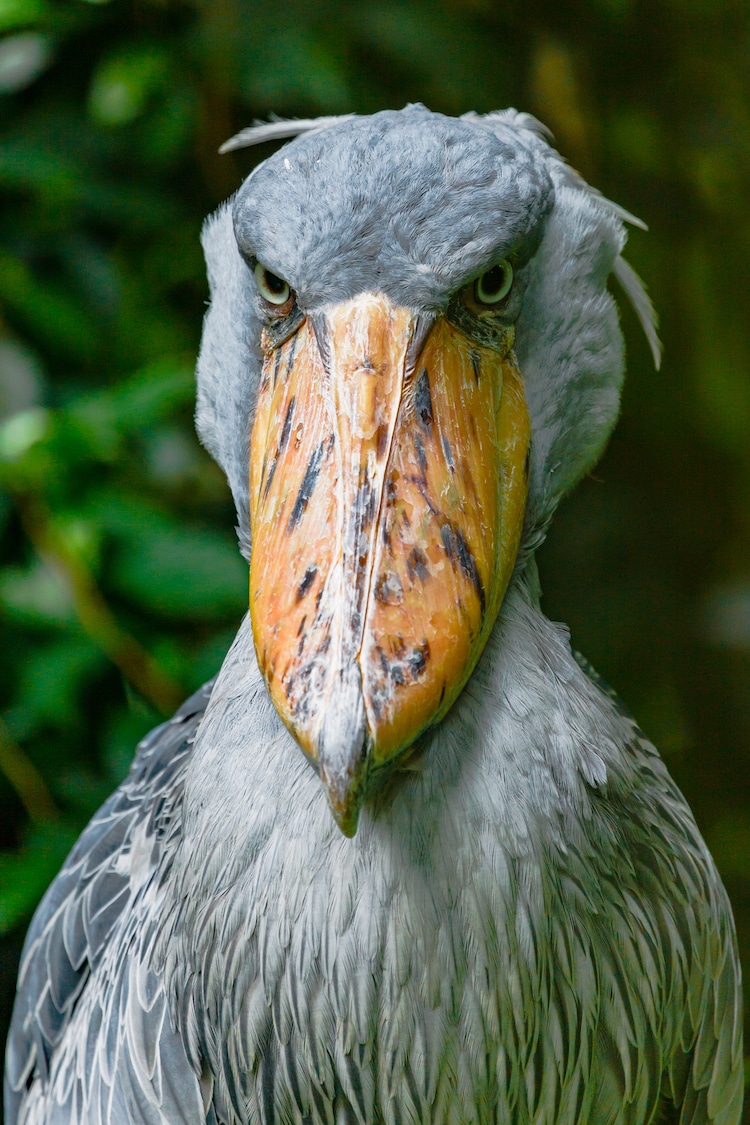
Photo: Webitect/Depositphotos
Thanks to their stature, they truly are kings of their environment.
They can reach up to five-feet high with an eight-foot wingspan, making them fairly intimidating.
Just their clog-like beak, alone, measures a foot long and nearly half a foot wide.
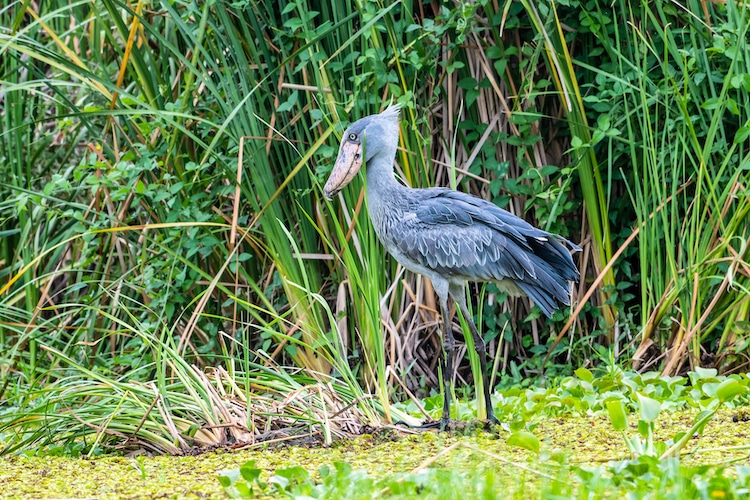
Photo: riverriver/Depositphotos
Shoebills can stand motionless for hours, waiting for the perfect moment to catch their prey.
And when the time is right, they make their move by exhibiting a behavior called collapsing.
They’re not only deliberate in their movements but also in their sounds.
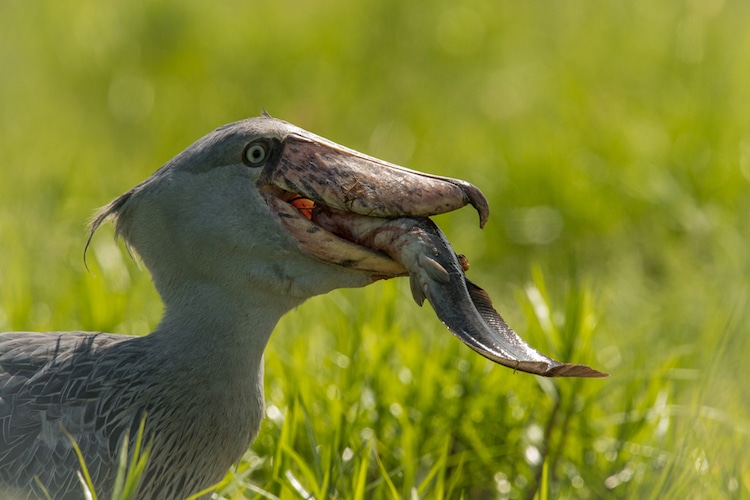
Photo: PetrSimon/Depositphotos
Shoebills are typically silent except when they arrive at the nest.
Then, they’ll clatter their bills, much like storks do, to communicate with one another.
Though shoebills are carnivores, they’re looking for small prey.

Photo: lues01/Depositphotos
Fish is the main component of their diet.
They primarily feast on lungfish, bichirs, catfish, and tilapia.
But they can also hunt monitor lizards, baby crocodiles, turtles, and frogs.
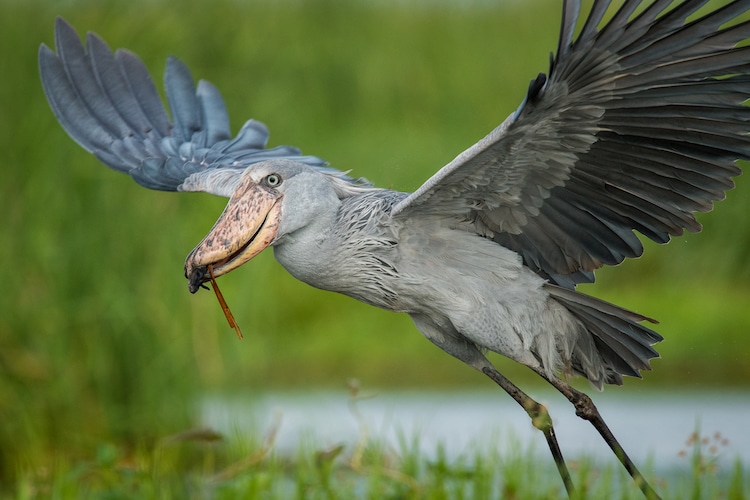
Photo: PetrSimon/Depositphotos
Interestingly, shoebills don’t live in groups.
Even mating pairs search for food on opposite ends of the territory.
Unfortunately, as one might imagine, the shoebill’s major predator is us.
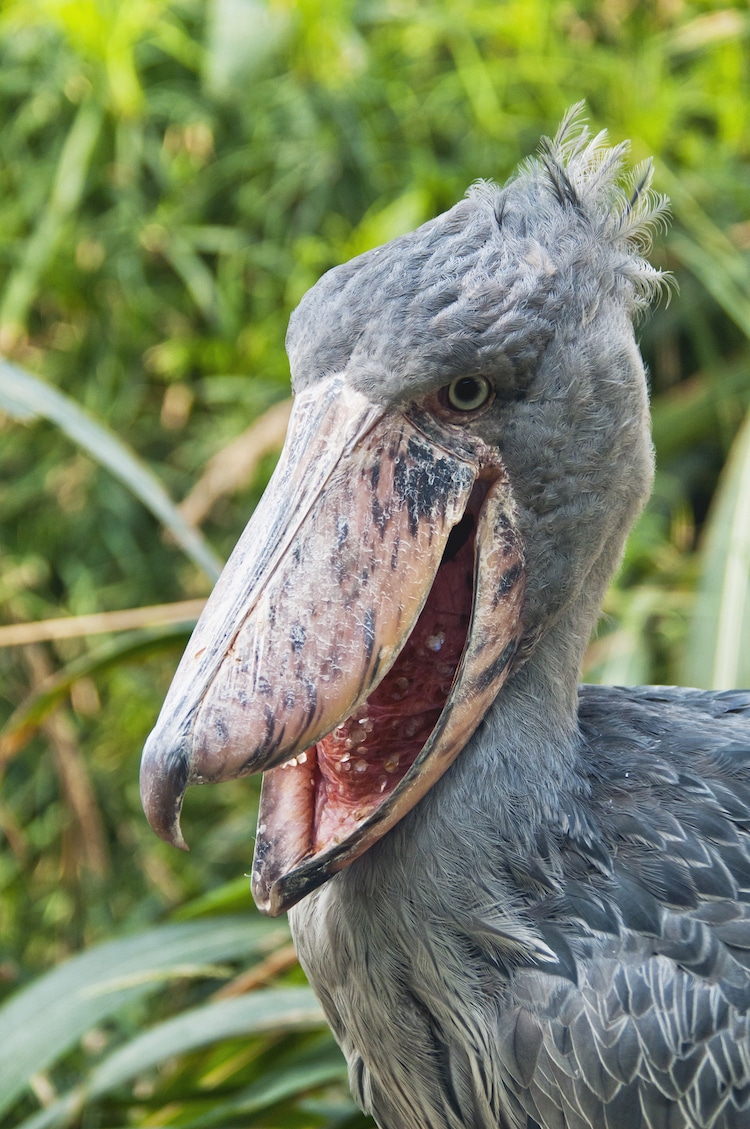
Photo: Nazzu/Depositphotos
Habitat destruction and industrial pollution are affecting populations.
Currently, the IUCNestimatesthere are between 3,300 and 5,300 adult shoebills left in the wild.
The majority of that population is concentrated in South Sudan, Uganda, Tanzania, and Zambia.
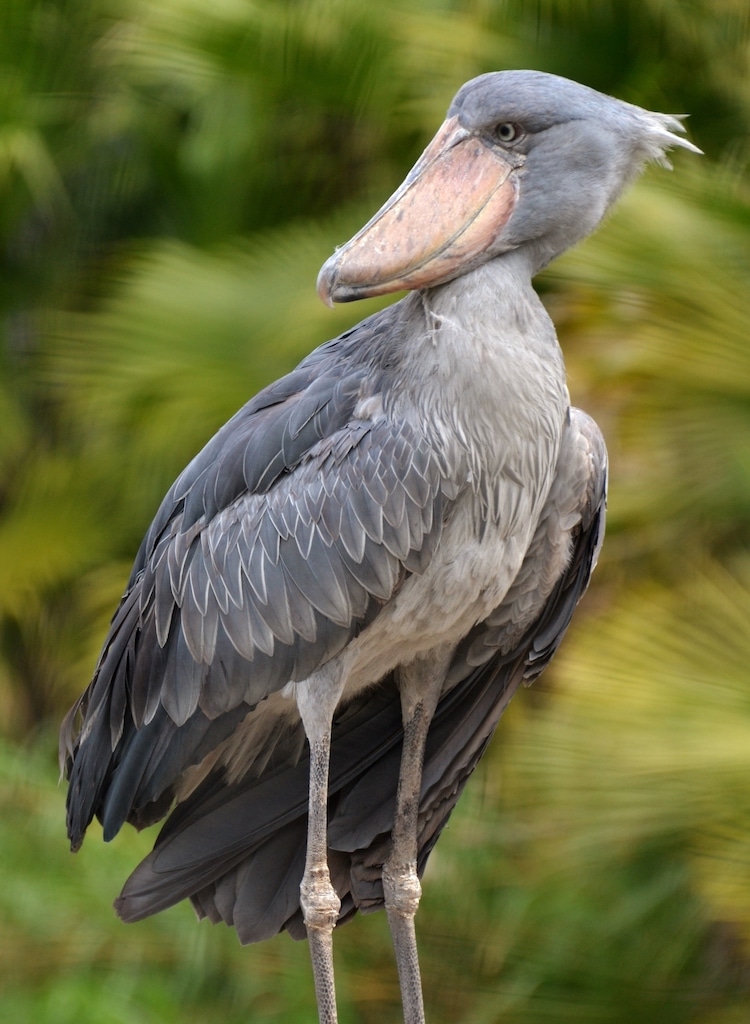
Photo: MichaelFitzsimmons/Depositphotos
Photo: lues01/Depositphotos
Photo: Nazzu/Depositphotos
Frequently Asked Questions
How big are shoebills?
Shoebills are between 43 and 55 inches (110 to 140 cm) tall.
Their length from tail to beak ranges from 39 to 55 inches (100 to 140 cm).
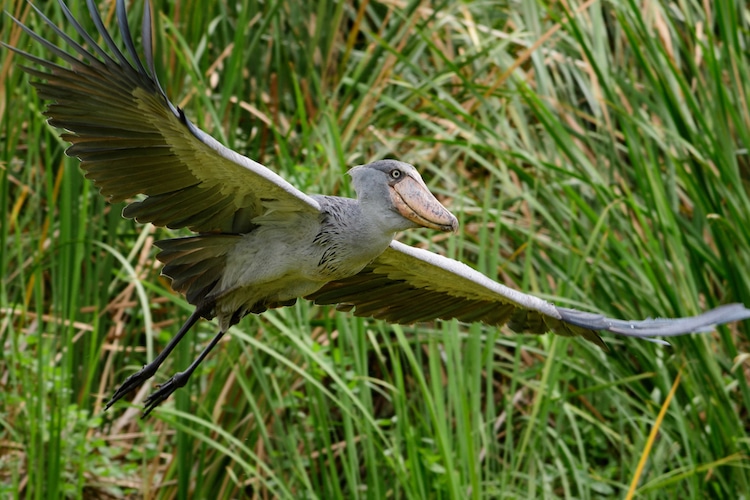
Photo: riverriver/Depositphotos
Can a shoebill fly?
Yes, they can.
When it does so, it shows its full wingspan, which can reach up to 8 feet.
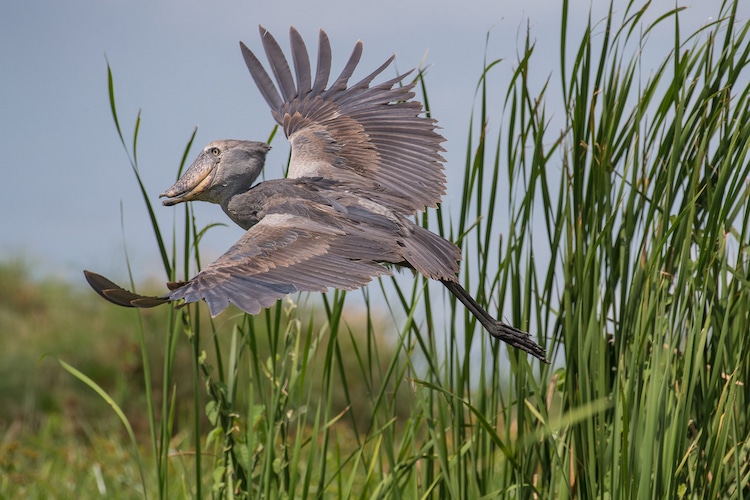
Photo: PetrSimon/Depositphotos
Where can I see a shoebill stork?
In the United States, it’s possible to see shoebills atZooTampain Florida or theDallas World Aquariumin Texas.
Photo: MichaelFitzsimmons/Depositphotos
Are shoebill storks endangered?
While shoebills aren’t yet endangered, their population is declining.
Are shoebills friendly?
If a human came across a shoebill, the bird would likely stare.